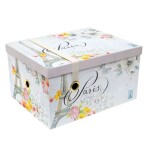Maximizing Dog Food Storage and Feeding Times
As a dedicated dog owner, ensuring your furry companion's optimal nutrition is paramount. Proper storage of dog food and adherence to feeding schedules are crucial aspects of maintaining your pet's health and well-being. This comprehensive guide will provide you with essential tips and best practices for maximizing dog food storage and feeding times.
Dog Food Storage
1. Choose Airtight Containers: Store dog food in airtight containers to prevent oxidation, which can degrade its nutritional value and palatability. Plastic containers with tight-fitting lids or heavy-duty resealable bags work well.
2. Keep Food Cool and Dry: Dog food should be stored in a cool, dry place away from direct sunlight and heat sources. Avoid storing food in the refrigerator, as moisture can promote bacteria growth.
3. Avoid Contamination: Always use clean utensils when handling dog food and wash your hands thoroughly before touching it. Keep food containers closed and away from insects and pests.
4. Rotate Food: Use the oldest food first to prevent it from expiring. Consider purchasing food in smaller quantities to ensure freshness.
Feeding Times
1. Determine Daily Calorie Requirements: Consult with your veterinarian or refer to the packaging guidelines to determine the appropriate daily calorie intake for your dog based on their age, weight, and activity level.
2. Divide Food into Portions: Avoid free-feeding and instead divide the daily food into two or three smaller portions. This helps prevent overeating and reduces the risk of bloat.
3. Establish Regular Feeding Times: Feed your dog at the same times each day to establish a consistent feeding schedule. This promotes regular digestive patterns and reduces the risk of digestive issues.
4. Avoid Feeding Table Scraps: While tempting, table scraps can disrupt your dog's balanced diet and contribute to weight gain or other health problems.
5. Monitor Your Dog's Weight: Weigh your dog regularly to ensure they are maintaining a healthy weight. If noticeable weight gain or loss occurs, consult with your veterinarian.
Additional Tips
1. Consider High-Quality Food: Invest in dog food brands that prioritize high-quality ingredients and nutritional balance.
2. Consult with a Veterinarian: If you have any concerns about your dog's nutrition or feeding habits, always seek professional advice from a qualified veterinarian.
3. Observe Your Dog's Behavior: Pay attention to your dog's eating habits and overall behavior. Any changes or abnormalities may indicate underlying health issues.
By adhering to these essential aspects, you can maximize the storage of your dog's food and establish healthy feeding practices. These measures will contribute to your pet's optimal health and well-being, ensuring they enjoy a long and happy life filled with vitality.

How To Organize A Raw Dog Food Freezer K9sovercoffee

Storing Your Dog S Food Correctly Skinners

How To Dry Dog Food Long Term Tips For Storage Valley

How To Organize A Raw Dog Food Freezer K9sovercoffee

The Best Dog Food Storage For Home And Travel

How To Organize A Raw Dog Food Freezer K9sovercoffee

The Best Dog Food Storage For Home And Travel

How To Organize A Raw Dog Food Freezer K9sovercoffee

The Best Dog Food Storage For Home And Travel

7 Best Dog Food Containers 2024
Related Posts








